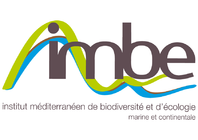
Post-doctoral scientist position is open for the project "Towards an integrated prediction of Land & Sea Responses to global change in the Mediterranean Basin" (LaSeR-Med), which focusses on integrated socio-ecological modelling. The duration of the contract is initially one year, with a possible extension for a second year, depending on the initial results. The post-doc will be based within the Mediterranean Institute of marine and terrestrial Biodiversity and Ecology (IMBE) in Aix-en-Provence, France. The project is part of the Labex OT-Med (http://www.otmed.fr/).
Applicants should hold a doctoral degree in physics, chemistry, microbiology, geosciences, environmental sciences or a related field of science. They should be familiar with modelling biogeochemical interactions between ecosystems and capable to further develop existing numerical ecosystem models. Programming skills (C) and modelling experience are therefore mandatory. Knowledge of R and of Unix/Linux environment will be an advantage. The candidate should have good written and oral communication skills. For work, good skills in the English language will be essential.
The project:
Terrestrial and marine ecosystems are connected through groundwater, river discharge and nutrient outflows (especially N and P). River catchments in the Mediterranean are N-intensive regions, mostly due to intensive agriculture in the North and to crop N2 fixation or food & feed import in the South. The fraction of nutrient reaching the sea constitutes significant anthropogenic forcing of many marine biological processes. For simulating the dynamics of the first levels of the marine food web (from nutrients to jellyfishes), the ocean biogeochemical model, Eco3M-MED, used and developed by the Mediterranean Institute of Oceanography (MIO) within OT-Med, currently uses N and P measurements at river mouths, e.g. for the Rhône.
In order to estimate the impacts of global change on the functioning of marine ecosystems, the project aims at modeling the dependency of N and P outflows to the Mediterreanean sea toward land management. Land management is modelled as part of the agro-ecosystem model LPJmL (Bondeau et al., 2007), that has been especially adapted to the Mediterranean cropping systems (Fader et al., 2015). Among others, LPJmL simulates the daily carbon and water cycles, and the river discharges to the sea. Following existing approaches in the scientific literature, the post-doc will implement the nutrient N and P transfer in LPJmL, covering the net nutrient inputs to the river catchments by accounting for the processes occurring at the agro-ecosystem level (N2 biological fixation, fertilization, atmospheric deposition) and the net food and feed imports. Since only a minor fraction of the net nutrient inputs from Mediterranean basins reaches the sea, the retention along the nutrient cascade will have to be added to the LPJmL river routing scheme, similarly to the method used by the Riverstrahler model. Once the nutrient transfers have been introduced into LPJmL, simulations will be validated using current climate and land use forcing for comparisons with the existing observations from river outlets. Finally, future conditions will be assessed by using the model with scenarios of changing regional climate and land use / land management.
Your application:
Applications should contain a suitable motivation letter describing your anticipated role in the project, a CV, a list of scientific publications and the names of at least two scientists that can be contacted for references. They must be sent to Ms. Gabriela Boéri (gabriela.boeri@imbe.fr). Please prepare your application as a single file in pdf-format.
Questions about the project or the position can be directed to Dr. Alberte Bondeau (alberte.bondeau@imbe.fr). The position will be filled as soon as a suitable candidate has been found – work should start soon after that date. The salary and contract conditions will be determined according to standards set by Aix-Marseille University – questions in this regard can be directed to Sophie Pekar (pekar@otmed.fr).




 RSS news
RSS news Print this article
Print this article
